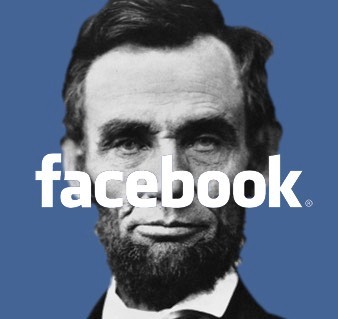When founder Mark Zuckerberg announced that his social media giant, Facebook, had reached the equally gigantic goal of 500 million users, my first reaction was, “What’s Facebook?”

I mean, I’m computer literate – have been since the stone age of 1990. I rely heavily on my laptop for all work and most long distance communication. However, when Facebook was explained to me, I thought, “Why?” I have e-mail as well as regular mail to communicate with friends and colleagues.
“Well,” I was told, “it’s faster and you can share words andimages more easily with friends and family.” Once again I asked, “Why? I can do all that with e-mail.”
When Twitter arrived in 2006, I realized that I had effectively moved into the slow lane of the digital highway.
“…we came across the word ‘twitter,’ ” founder Jack Dorsey says, “and it was just perfect. The definition was ‘a short burst of inconsequential information… chirps from birds.’ And that’s exactly what the product was.”
Great, do I really want to sound like a chirping bird to friends and colleagues?
Of course, Twitter has been used by all manner of celebrities and politicians to promote campaigns and build fans. However, when a family member was involved in an auto accident not long ago, the initial way my wife and I found out was through a Facebook posting. Although there were only minor injuries, you’d think an event like that would entail a phone call. If my wife had not opened a Facebook account (which she was encouraged to get and rarely uses), how long would it have been before we heard the news? I don’t know.
A friend confided that one of the reasons he broke up with a girlfriend was her constant reliance on text-messaging to communicate. Despite pleas for phone conversations (good) or face-to-face conversations (better), she was unwilling to change, what had become for her, a preferred method of communication.
“I can’t tell if she’s being funny or serious,” he said, “I can’t decipher the tone or intention of her thoughts from a text message.”
Now, it’s important to point out that both Twitter andFacebook have been instrumental in a variety of recent events – Egypt’s overthrow of corrupt President Hosni Mubarak, for one. Thanks to the brilliance of social media, protestors were able to organize and get the word out to the rest of the world in real time. 15 of the G20 governments use Twitter and President Obama is considered to be the most followed of all world leader accounts.
All this got me thinking. Would Lincoln use Facebook if it were available during his time? Would he tweet?
In fact, I think old Abe would use both!
How else could he maintain trusting relationships with both his electorate and “team of rivals” without communicating with them on a regular basis?
However, I don’t believe he’d use either tool to excess. I can’t see Lincoln tweeting, “Mary made another pot roast, tonight. Boy, can that woman cook!” Or, “Let’s talk about this later, Fred. I’m off to the theater tonight.” He might tweet a cabinet member with a question concerning the war or to schedule a private chat. While Facebook would offer him direct access to the people – something, I believe he would enjoy – our 16th president would defer his eloquence for a speech where he could draw the necessary attention to a specific issue he wished to address and through the letters he would write.
In a January, 2009 Newsweek magazine article (The Good Word), Malcolm Jones writes, “Abraham Lincoln’s speeches leave us in awe of the man. His letters make us like him, because we hear a more unburnished voice and more unbuttoned personality. Lincoln the letter writer was less shackled by thoughts of how history would read his words. He loosened the reins on his humor, his anger and his melancholy. He was, in a word, human.”
And that is precisely the critical element that is missing from most social networking “postings.”
There are no shortcuts to building relationships. In reading brief, declarative statements about someone’s activity-du-jour, we lose context which is vital to understanding how a person thinks and feels – both essential in relating to the human side of another. This is why letter writing is called an art. In the long run, a letter or extended e-mail, gives the writer a chance to reveal who he or she is.
“Writing a lot of letters,” Jones tells us, “will not turn you into Lincoln or Shakespeare, but if you do it enough, you begin to put your essential self on paper whether you mean to or not. No other form of communication yet invented seems to encourage or support that revelatory intimacy.”
It is that kind of closeness that connects us all to each other.
I’m not suggesting that using Facebook or Twitter is unethical. There is, however, an underlying aspect of respect in all the communication we engage in. And unless your 140-charactertweets are on a par with Robert Frost or Elizabeth Barrett Browning, you can’t beat a good letter or comprehensive e-mail that communicates not only the events that have happened, but how you think and feel about them.
Comments









